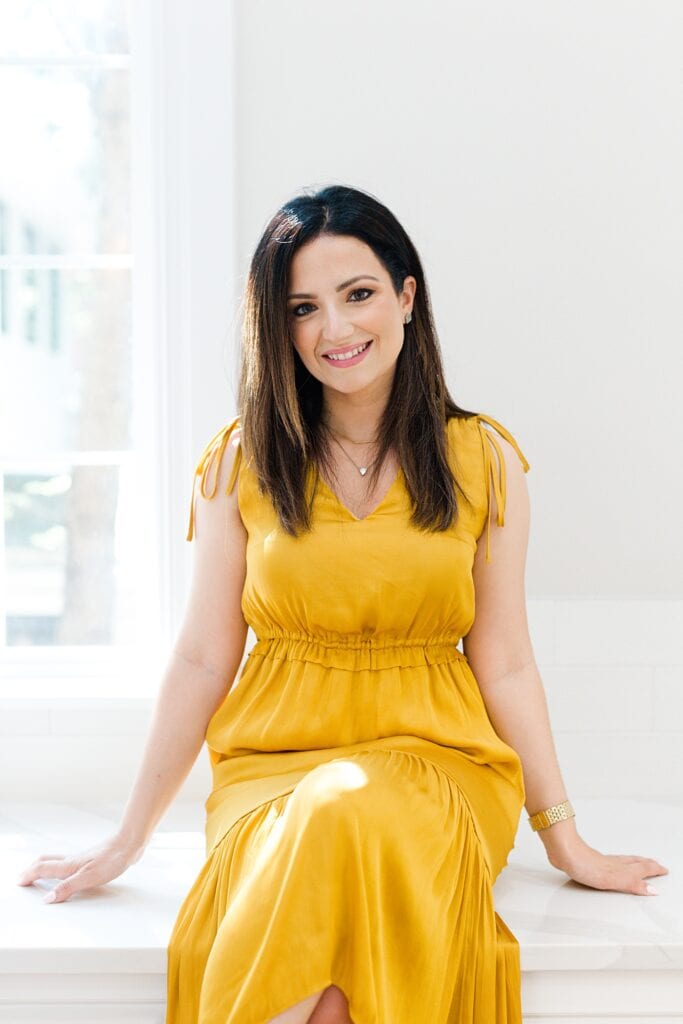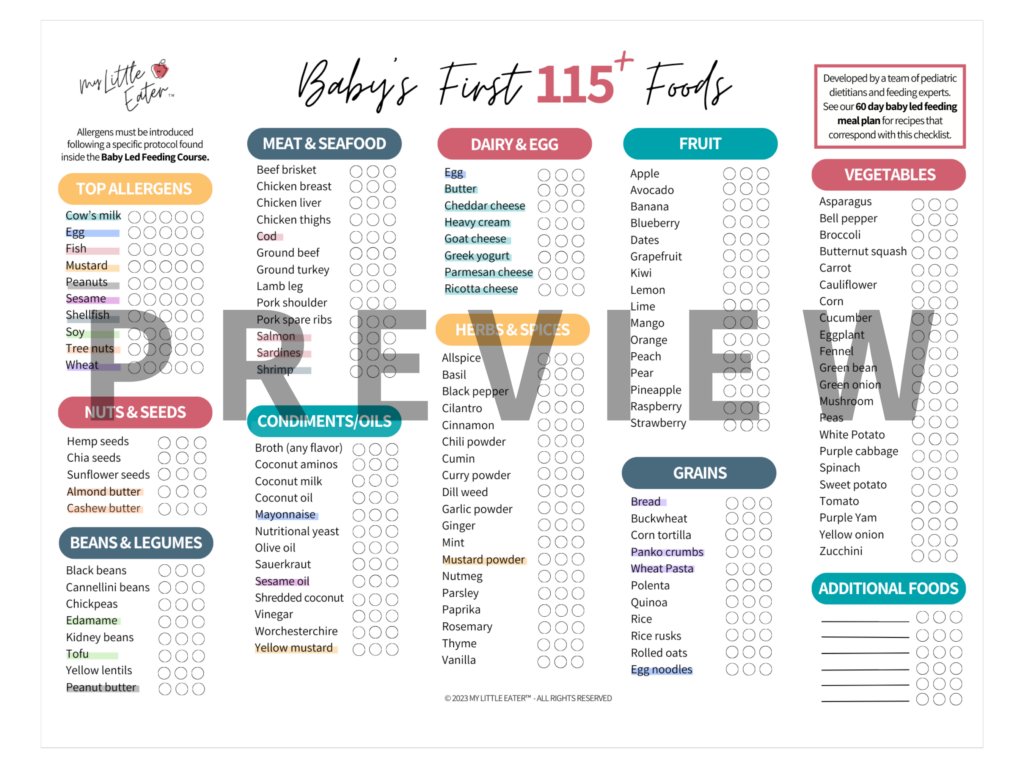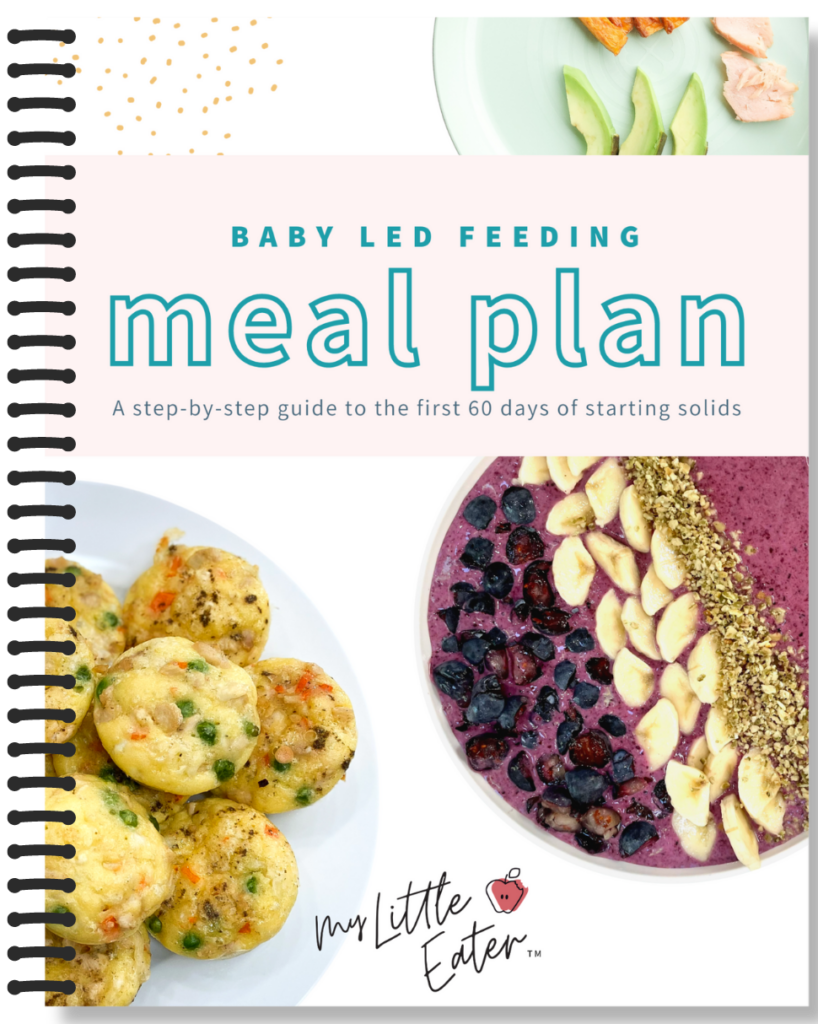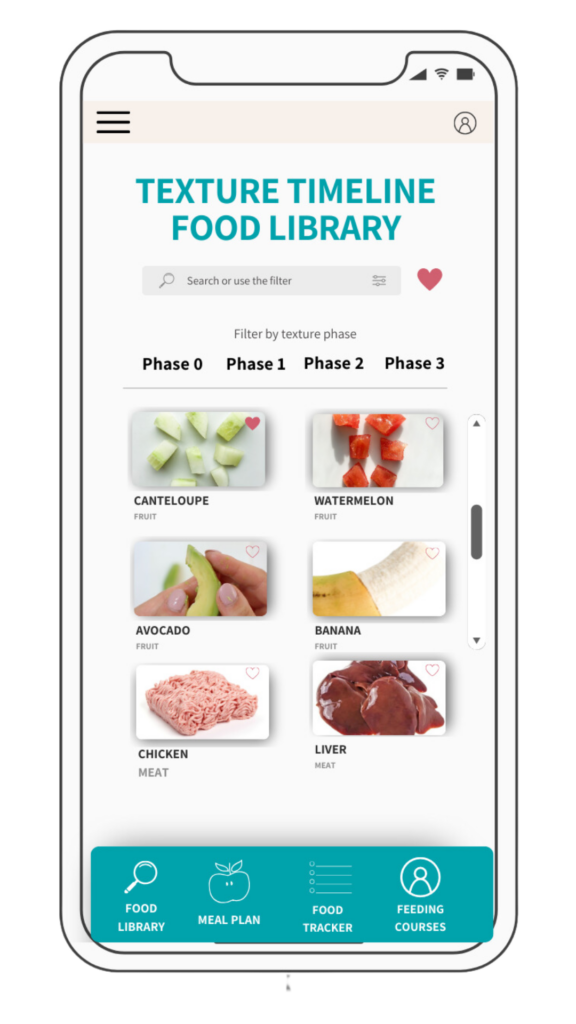
I’m not sure how you feel about making friends, but it is not my favourite thing in the world! I find myself overthinking everything, and even with my current friend group, I overthink get togethers and often feel just overwhelmed with maintaining that connection. And once I became a Mom I really noticed these issues take hold. Being a Mom can be all-consuming at times – you’re responsible for another human being, that’s A LOT of work! Add in a full-time job (or part-time, SAHM duties, etc.), maintaining a healthy relationship with your partner, and your day quickly fills up leaving very little, if any, room for the all important self-care time and friendships.
Since I struggle with this, and have heard from many other moms who feel the same, I decided to bring on a friendship coach to the My Little Eater™ Podcast to chat about these concerns, and more. Danielle Bayard Jackson is the founder of Friend Forward, and a certified women’s coach that specializes in friendship and communication, and she was so wonderful to have on the podcast – I seriously have learned so much from her! You can listen to the full episode here, and I’ll include a lot of her top tips below as well.
Danielle’s Journey to Becoming a Friendship Coach
Danielle describes that even just a couple months ago if she would tell somebody that she’s a certified friendship coach, they’d say “Oh, that’s cute.” But she understands that reaction completely. This isn’t something that she had on her vision board when she was 18, but it’s something that she stumbled into. She was actually a high school English teacher for six years. And through that she’d have teenage girls with their drama between classes, or they’d go to her, almost like in a big sisterly way after class about things, and she’d try to help them through it. But then when she left education and got into public relations, she was speaking with high powered women, these entrepreneurs, VPs at startups, and when they were alone having strategy sessions somehow the conversation would turn personal. And on that level, she was discovering that they didn’t have any friends because they were so ambitious or career-driven.
This was her “aha” moment of like, “Oh my God, wait, this is like a thing, like in every season of your womanhood, you have to learn how to navigate friendships.” And so it kind of became a spiral because she went home that same day, and went on Amazon to look up friendship books out of curiosity. And anything that came up was about friendship for kids, it was all very juvenile. But when you look up motherhood books or marriage resources, there was tons of that stuff, but there wasn’t anything to help women maintain friendships with other women. No one to address what you’re supposed to do, what do you say, etc. So that’s when her obsession took off. From there she went to get certified as a coach, and she became obsessive in her own studies, and in interviewing psychologists and doing her own surveys.
I love how observant she is. And I agree. I’ve seen that happen, and I’ve experienced the struggle with friendship, especially after becoming a mom, but I’ve never ever thought where do I go for help with that? I just love that our generation has access to this type of info right now.
How friendships are linked to self-care and how to maintain them as a mom
I know that friendship is such a huge part of taking care of your mental health, and giving you life and giving you joy as an adult. But that being said, no matter how much I know it’s good for me, and no matter how good I feel after coming back from a lunch meeting, or a lunch date with a friend, or a night out with a friend, I personally find it so incredibly hard to maintain friendships since becoming a mom, mainly because I feel like I have no time for them.
And it’s even worse since becoming an entrepreneur because my family comes first, then my work, and then it’s my personal time, and I’m an introvert too. So I need to recharge by staying at home and having me-time. So then my friends come into play after that. And so again, it’s a really hard thing for me to accomplish. But let’s just talk about what I think the common factor is for most moms, which would definitely be the time factor, I would say. So I asked Danielle what advice she had for mothers…new mothers, mothers who have been moms for 10 years, doesn’t really matter. How can we maintain friendships? How do we even have them and incorporate them as part of our life as a mom?
Here’s what she had to say:
“It’s hard because our days become, you know, the feedings and the washing and the changing and the nursing. And I wonder what the data or research is on, when you stack all that up, how many hours a day are we just mothering? So it does kind of consume such a large part of our lives. And so with that being such a high demand, it almost feels silly to schedule a brunch because it’s like I have so much to do, I don’t have time for this. So the first thing I like to start with is we have to figure out a way to stop viewing friendship as a luxury. The view that if I have time leftover, I’ll get to it. Most of us are pushing friendship to the margins of our life. We’re putting family first and then whatever makes us money second. And then if we have the time left, then maybe we’ll go out with, you know, Susie, and we have to stop looking at it as nice to have – it is a need to have. And there’s way too much research that points to the detriments of a lack of a strong social network on our physical, mental, and emotional health. And I’m glad that we’re starting to have the conversation very broadly, and openly, about loneliness and friendship. And I think the pandemic has made people more comfortable saying like, man, I feel kind of lonely. I feel I miss my people. I don’t have friends. I think we’re now getting comfortable with that. And I’m glad because we don’t talk about friendship enough from a health perspective. And I feel like if we did, more moms would be like, Oh no, no, no, I have to make time for this.”
Danielle describes that the first thing to do is a mindset shift, which she explained above. The second thing would be maybe redefining what it looks like to be with your friends, because we’ll say, “Oh, I don’t have time for friends.” But what you really mean is, “It’s really hard for me to get out and go to brunch every weekend.” Yes. Agreed. But as far as time for your friends? Well, wait a second, you can hop on the phone for a 10 minute chat. There’s new research that shows that a 10 minute phone call might be more fulfilling for you than an hour long Zoom happy hour, because you have to be present. With Zoom, you’re still kind of thinking about being on and the camera’s on, but if you have a 10 minute distraction-free phone call, where the result is a change in your mood and how happy you feel afterwards…Do we have time for that? Yes, we do. Even the busiest of us.
Danielle goes on to say how she understands how this can be difficult, she’s another one who likes to work, and she knows that she can make time for a 10 minute call, but she has to reframe her thinking and see that call, and taking that time, as super important. She says “I know it’s not very sexy to say, you know, get it on the calendar, but that’s exactly what we’re going to have to do, you know, so that we know, Hey, I can tell my husband Thursday at six, I’m chatting with the girls. I’m letting everybody know because I have to be intentional about this. I know that I need to stop my work meetings at 5:30 because I got a call.”
Sometimes this allows us to intentionally make sure that we follow through with that. And then also finding ways to fit it in where we can in our lifestyle. But if the demands are such in your life now that you can’t hang out at brunch every weekend, understandable, but we can certainly do a phone call or send a meme. Danielle used to say that we aren’t going to sustain friendships on memes alone, and that’s still true. But if there’s so much going on in our world, and the way that you’re staying in touch with your friends right now is sending little quick things back and forth to show that you’re thinking of them, it still keeps them top of mind in your life. If that’s all you got right now, that’s a really good starting point, and we can get a little credit for that too, but we’ve gotta be intentional because it’s really important to our mental, physical, and emotional health.
I love how she suggests reframing how you think of it in your mind. So that’s a big one for me because I tend to think of it as a selfish thing. And I tend to, typically, think, well, how can I go hang out with a friend or go for brunch or whatever, when my house is dirty, when my kids need food, when I have to, you know, anything else. And I also prioritize other things, like other self-care things over friendship. Which I shouldn’t, I know I actually feel way better when I, once a week, go see a friend versus that Saturday go to a gym class.
It depends for everybody, but for me, I know that I feel better when I do that, but for some reason I think that’s not as important. So I think that’s the first thing that I need to work on. And I think maybe a lot of us need to work on this and see it as continuing to refill our cup. And especially during self-care week, we’re always reminding moms that we have to be feeling rested. We have to have our needs fulfilled in order to be a good mom. And if that’s our priority, then friendships should be our priority. We need to make those connections. We need to have those conversations. We need to have someone to vent to and connect with.
The other thing that really resonated with me, was the whole meme thing. I know that if I get a text from a friend that is literally like a meme or sometimes one of my friends sends riddles, it’s the funniest thing in the world, but she’ll send a riddle like once a month. And our group tries to figure it out. It probably takes us a week because we’re all so busy, but that’s it, that’s all we do, but it makes us feel connected. And I think that’s a good thing.
Tips for those of us that take a long time to respond to messages (aka me)
I feel like I’m bad at maintaining friendships, especially again, since becoming a mom. I am not the one to follow up weekly. I am not the one to answer your text within 24 hours – it will be two days and then it’s a dead conversation. So what tips did Danielle share with me for this problem? I wanted to know if I should be only investing my time in friendships with other moms who maybe understand that and who are in the same position, or is there a way for me to sustain friendships with women who aren’t moms? For example, friends from the past, I don’t want this to be hurtful for them, or to think that I’m just ignoring them.
The first thing she acknowledged was how great it is to be self-aware like that. Knowing that this is an area where you can step it up is important, and also recognizing that this is how you prefer to communicate. The first thing she suggests is to articulate that, now some of your friends who’ve known you forever, they already know, but letting people know, especially new friends, that you get distracted sometimes and you don’t get back to texts. This is often something that we put into a romantic context, this idea that we have to communicate with our partner, or somebody we’re dating. But there’s something with friendship where we have this expectation that because we’re women, we’re friends, we don’t have to spell it out. We expect them to just get it, and that’s simply not true. And so the first thing is to communicate that about yourself. Let them know you’re delayed with texting, it doesn’t mean you aren’t thinking about them, and it’s something you’re trying to get better with. That way if they’re ever interpreting your silence as you having lost interest, or you being upset, you’ve made it clear from the beginning that this is just your thing. It also helps to say things like, “Hey, I’m actually more of a phone person.” Danielle described having a friend that doesn’t like to text, but prefers a quick phone call, and since Danielle doesn’t mind either she knows that since she likes the phone, she’ll call her instead. So after like one or two texts, she knows she’s probably annoyed, and so she’ll pick up the phone and chat really quick. It’s all about communicating, and it’s about adapting.
Now, when it comes to mom friends versus non-mom friends, the thing is we tend to become friends with people we see all the time. That’s why we became besties with our classmates, or the girls that lived on our same floor in the dorm. And there’s a study that even showed that we tend to become friends with those we’re close to, it’s just a matter of repeated exposure. It’s proximity. So that’s why we end up becoming friends with coworkers, for example, because you see them all day long every day.
And so whoever you’re spending the most time with is probably where your new friendships will emerge, just by definition. But if you’re saying that you want to switch it up and have some non-mom friends too, because you don’t always want to talk about diaper cream all day long. Then she suggests doing little things, like maybe you have friends of friends who often get together, so try asking to be a third wheel. She acknowledges that that makes us uncomfortable, we don’t want to seem clingy or desperate, but if you have friends who are very extroverted, and very social, even saying something like, “Hey, I’m trying to switch up what I do a little bit, the next time you have a little something, you know, think of me, or I’d love to come.” People don’t know how to help us if we don’t make it known. And so letting friends know that, they’re usually happy to help. And so it just is a matter of being intentional and spotting opportunities to make the kinds of friends you want, where you want.
What about if you’re an overthinker?
I think that is one of my things, I overthink. It’s so simple to just tell my friends that I’m not going to text them back in 24 hours, just set that expectation. This would probably make it a little bit more possible for me to actually maintain a friendship versus me thinking that the conversation, or friendship, is dead. And actually, what happens is that I’ll go a period of time where I haven’t reached out to them, and then I just feel guilty and then I feel awkward. And then I think, ok well, I need to find a new friend. I just overthink things.
But I think I’m not alone in this, I think women do this. And I talk to my husband all the time about this because his friendships have never changed. He’s still friends with his best friend from when he was young, and his soccer friends. And he’s added more from work, and so he’s got this whole crew of people that he sees on a regular basis. And I’m like, how do you do that? I don’t understand. And I think it’s because, well he always tells me this anyways, that I overthink it. If I want to have girlfriends over my house has to be clean, I clean for about 3 hours before, and I’ve got to get some things to serve them. And I want to make this pretty little tray of food, and I’ve got to make sure that the kids are taken care of. Whereas my husband is just like, just invite them over. And he’ll do that. He’ll have his guy friend over in the midst of our crazy Saturday morning, like breakfast and running around and doing things, and his friend will just tag along in the car or sit down and eat with us. It doesn’t have to be a separate event. So I think that that is something that we can all get better at is just stop the overthinking maybe. So I wanted to know if Danielle had any advice on that, and whether she sees a difference between the friendships that moms and dads have.
She described male friendships as being more activity-based. So she even saw something that said that we’re wondering if male friendships suffered during the pandemic more than womens, because men tend to do things together and that social backdrop is what they need to have conversations, but they’re doing something in the meantime. However, for a lot of women, you just give us each a cup of coffee and we’re good and we’re just going to chat for the next three hours. And so our friendships themselves kind of look a little different.
Danielle goes on to offer another idea, based on a study that was trying to gauge how we define friends and whether that differed between men and women. They gave a series of questions to women and men and asked them about their friendships. It was asking them questions like do you have somebody who you could call if you got in a pickle? And they noticed when they asked men about the names of some or their friends, for example if they were asked if they had someone they could ask if they needed to borrow money. Some men were writing down the names of people who’d passed away, and they didn’t even know. And the takeaway there is men will use that phrase for a while. They’ll call somebody their friend, or their buddy, from like 30 years ago, who they have not seen in 25 years. And they’re still using that phrase. But for us, as women, since we have so much emotional intimacy and closeness in our friendships, if we haven’t seen you or spoken to you in 10 years, I’m probably not using that word. Or even five years, or even one year, if we haven’t spoken, I’m probably not going to even use that word. And so for us, we do need closeness and we need to see them. We need to be talking to them and we use that word sometimes loosely. And then we take it away loosely when we feel slighted or that there’s distance. So it just looks a little different the way that we bond with each other. And, she knows she may be generalizing a little bit there, but typically that’s kind of how it works.
Danielle also discussed how it was interesting that I feel like if I have them at the house I have to do all these things. If she were coaching me, she’d ask questions more about why I feel that everything has to be presentable before letting friends in. Because a little bit of that is that word vulnerability. When we think about vulnerability, we think about crying our eyes out and telling our secrets, but it means taking a risk, and feeling safe, feeling seen. So what friendships do we have where it’s okay to have that? A friendship where if my house is not together, I trust she’s not going to judge me or think that I don’t have my household in order. I trust that she doesn’t care, and that she’s not going to think differently of me. That is an exercise in vulnerability. So it doesn’t necessarily have to be, I’m hosting an event. It’s just my friends coming to hang out, and I trust that I don’t have to be presentable for them to come and spend time with me.
And when I think about this, it’s actually how I was raised. That’s how friendships are like in my world. My mom’s friendships and the people around me, that’s how it always was, that’s what I would see. But I also think this combines with the fact that they’re not moms. So a lot of my friends just started having babies, and that’s even still a small percentage of them. So I think that’s also where I assume they won’t get it because they’re not moms, and therefore I have to act like I did before I became a mom.
I think what Danielle said at the very beginning is so important, we have to remember the purpose, and remember the priority that friendship has in your life, and what it does for you. It’s not a thing that comes later and a thing that comes when things are great and perfect, it’s a necessity. And I always am reminded every time I leave from seeing my friends that this is true. I’m like I had a good laugh, I feel rejuvenated, I feel alive again, I feel like I have room to breathe again. And I always think, “Why don’t I do this more? Why do I always overthink it?”
Fight or Flight…Tend or Befriend
Research shows us that, from a study with women, that we actually have two more responses to stress, other than fight or flight. These are tend or befriend. So one of the responses we have when we’re feeling really stressed is to seek out a female friend to talk to, and to try to process what just happened. And it’s proven that when we do that, we release oxytocin and it literally calms stress. So literally being with your friends, allows us to feel rejuvenated. And so even from that perspective, it’s clear that you do need to have time with your friends, whenever you need to emotionally dump, and that’s when we’ll say okay, let’s hang out.
Friendship is something that really does help us to de-stress. And I think that’s maybe something to hold in our minds, and that will help us be intentional about seeking it out. Another point to make is that people who don’t have strong support networks are more inclined to have heart health issues, and depression and anxiety. And they’re actually saying that loneliness, the effects of it on our body, has the same impact of smoking 15 cigarettes a day, or the same impact of obesity. So if we think of it that way, and hold fast to that truth in our mind, would we be more intentional about checking in with our friends?
Now let’s think about this in motherhood, you’re surrounded by a bunch of people all the time, so can you really be lonely? You’ve got the kids running around, you might have your partner there, but sometimes motherhood can feel very isolating, especially if you’re in a household where you’re the mom doing all the things and it feels like that’s your role. Where you know that if you don’t do it, like cleaning the house, fixing their meals, organizing outings…if you don’t do that, it’s not going to get done. And so sometimes that feels very isolating, and that in itself can make us feel like no one gets us. Nobody understands our unique job, and the demands of what we do every single day. And that kind of thought process is dangerous. You need friends to see that you’re not alone. And that’s where mom friends serve a special role because they can appreciate exactly what you’re going through, and they can validate those feelings.
And non-mom friends are helpful because it helps remind us who we are outside of motherhood, and friends have such an impact on shaping our identity. That’s where we learn what’s “normal”, who do we want to be, what are our values. We’re developing that stuff through friendships too. Even as adults this is happening, through talking and hashing things out. You’re learning who you want to be. And so you need non-mom friends too, to remind you that you’re not just a mom, and you can have conversations outside of talking about lice and sunscreen and sniffles. And sometimes you need to be reminded of that side of yourself. And so if we understood more deeply the impact to our health, and to our identity, and being reminded of who we are just as women, without motherhood attached, we’d see that friends can serve a really great role in that way.
Changes to friendships when becoming a mom and how to cope with them
Danielle hears from some women that believe their friends weren’t really a friend because they had a baby and that friend just disappeared. But she always suggests giving them the benefit of the doubt. You both have never had practice being friends this way. So let’s give everybody a breather. You are used to doing things spontaneously, and the activities you did together didn’t have to be scheduled around kids. So you’ve never had practice being friends where you have to calculate so much.
The second thing is, she noticed that we start to make a lot of assumptions for each other. So non-mom friends will assume that you can’t go because you’re a mom, or they’ll plan something without being mindful of your new schedule. For example, maybe they’d plan a lunch at 1pm, but that’s your baby’s nap time. And mom friends, we do it to non-mom friends too. We assume that they probably won’t get it, and so we just decide that maybe they won’t want to come to things. And that’s not malicious. If anything, we think we’re being generous and mindful of them, and that we’re not bothering them by asking.
Another aspect then is that because of the things that are placed on our plate, and in the new demands that we have, how much mental energy we have for certain people is affected. And so it doesn’t mean we don’t love them, but you really can only maintain so many friendships. And kids take up so much of that mental energy. There’s a study with research done by somebody named Robin Dunbar, and the concept is called Dunbar’s Number. The idea is that our brain can only maintain 150 connections. Now I think social media has made us think differently because we’re like, but I have 4,000 followers, so I can do more. But really in terms of how many people our brain knows and remembers, we’re talking about the barista we see every day, our husband’s cousin who we see every year, that number totals 150. So if you think of that as one large circle, and then concentric circles inside of that circle, the smallest circle, that number is five. You can only maintain, mentally, five strong connections. And when you have a romantic partner, that person takes up two of those spaces, leaving you with three. And so we really can’t even maintain the 10 friendships that we are used to having. The pandemic has shown Danielle that extroverts tend to push back when she says this, they’re like “No, I’ve got like 8 best friends.” But she always corrects them and says “No, you don’t, you just really like people, but even in that group of 8 best friends, you’ve got like 2 people that you really connect with, that you really trust more than the others.” And so she likes to offer that for women who feel that they don’t have as many friends as everybody else, that yes they really do, they’re totally normal.
Danielle also hopes this allows us to breathe a collective sigh of relief because when you become a mom it just sucks up some of those spots because of everything you have to store up in your brain, and you’re stressed, and all the other emotions. So no, you probably can’t maintain the six close friendships that you had before kids, and that’s okay. And thankfully those kids grow up, and you get to kind of stretch out a little bit more, and get back out there. But if you’re thinking that motherhood changed everything, and you’re wondering where all your friends went, then there’s lots of things playing a role. But if you can be intentional as much as you can, with the demands of your kids and things like that, then at least it helps a little bit. But no, it’s not just in your head, it is definitely a natural consequence of having kids.
When I think about this concept that she shared, it makes sense. And I think for me, I took it personally, and I figured they didn’t care. They didn’t come see my kids or didn’t understand why I couldn’t make it out that night. But I think now that I’m almost on the other end with my kids being 12 and 10, they don’t need me anymore to watch their every move. My oldest even babysits the youngest, and they can go do their own thing. So I have now rekindled so many old friendships, and I’ve been able to participate, and I’m getting that part of my life back.
The important thing is to understand that this is a season of life that you’re going to go through where maybe some friendships aren’t going to click. It doesn’t mean you never liked each other or anything. Sometimes it will work, and we’ll have those few select friends that we can maintain that friendship with, that were the closest people to us, that will understand as you go through this period. And then after that, it’s okay, you can shift and things can change, life is going to change again too. So just remembering that it’s all temporary and that there will be different changes, because there already were changes. The changes in friendships between high school, and college, and then the couples friends you had when you got married, it all changes, and I think remembering that perspective can be really helpful.
A final note on why being intentional with friendships is crucial
We have to be intentional in keeping those friendships for our kids’ sake. Our kids need to see us model laughing with a friend, and listening to a friend. They need to see us resolve conflict, and not just be so giggly with our friends always. They need to see all of that, because if they don’t see it from us, where are they learning it? For example, think about your mother’s friendships, did she have any? A lot of us never make that connection. Who was the first person to model for you what it looks like to have friends, or to host them, or to laugh together, or to cry together, and work through a problem together? Who was showing you that? And so, for those of us who are battling right now with feeling selfish for making time with your friends, or taking time for you instead of being with your kids, your kids need to see you have friends. And so hopefully that can alleviate any guilt that some of us feel about investing and pouring into our friendships. Your kids need to see that.
If this is something that you struggle with, and something that you want to have more guidance in, be sure to check out Danielle on Instagram, and you can also look at her membership program called Friend Forward to get all the tips and tricks for maintaining, rekindling, or creating new friendships, as well as fun virtual events to connect with other women and develop those friendships.





